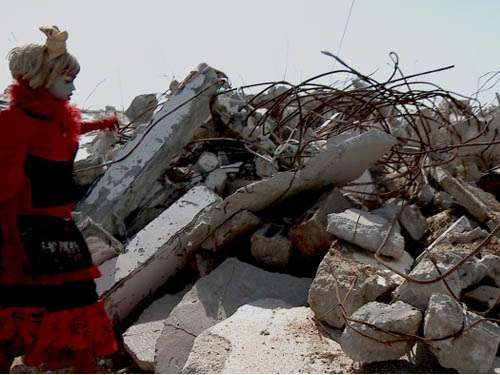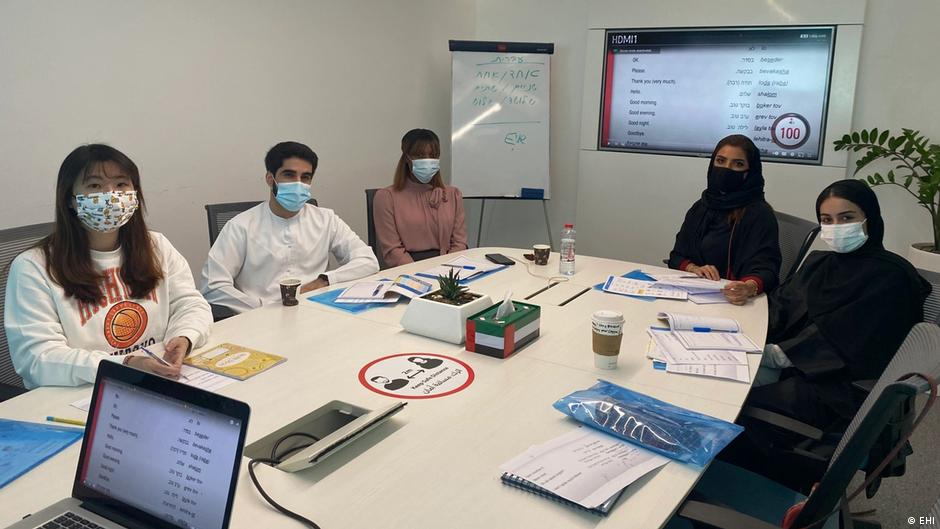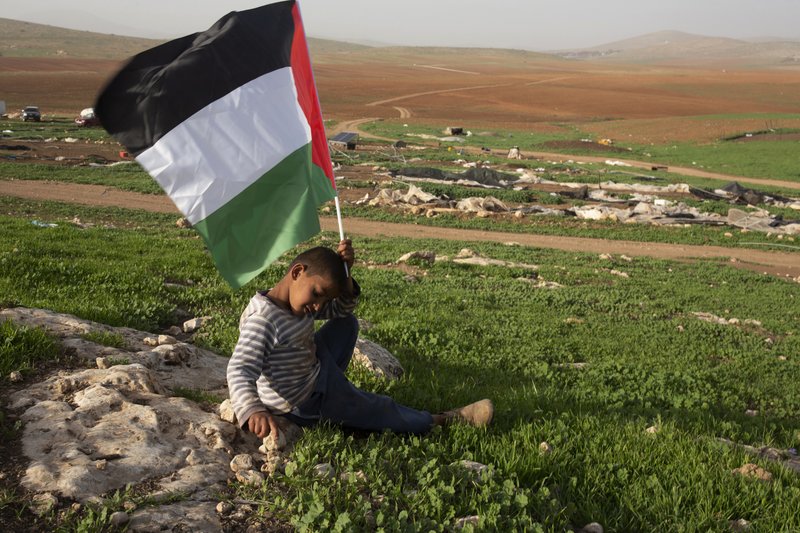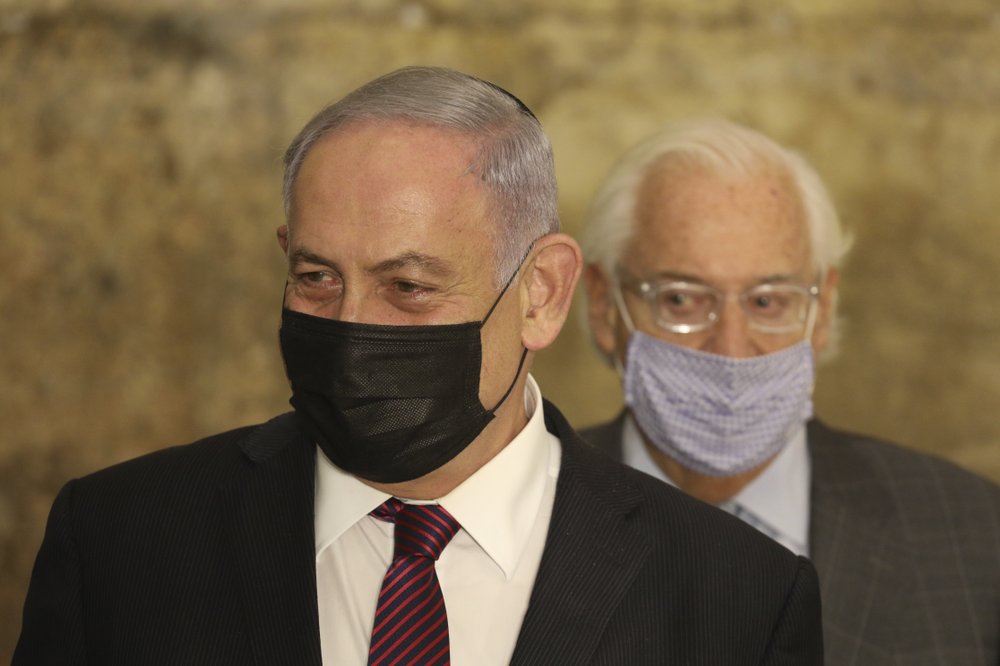
BERLIN — In recent years, Israeli cinema has enjoyed a strong presence in major world festivals, winning awards right and left and exploring different perspectives of the Middle East conflict that is not always pro-the Jewish state.
At best, these films offer a self-reflective admission of guilt for both the bloodshed and the Israeli authority’s unjust treatment of its neighbor, interspersed with subtle subtext protecting Israelis from taking full blame. At worst, they can be poisonous right-wring affronts focusing on Israeli pain inflicted by a relentless, peace-hating enemy.
Two Israeli films screening at the Berlin International Film Festival this year epitomize this dichotomy. The first is Dan Setton’s documentary “State 194,” an earnest American/Israeli production heavily promoting a two-state solution. The film charts Palestinian National Authority Prime Minister Salam Fayyad’s quest to obtain full membership for Palestine at the UN. Setton follows Fayyad — a respected figure in both the West Bank and Gaza — as he roves the occupied territories to put into action his ambitious infrastructure plans. Interspersed throughout the main storyline are diverse episodes featuring Palestinian bloggers, Israeli activists, Jewish war veterans and American peace-brokers, all advocating the Palestinian cause and the possibility for an end to the 60-year-old strife.
Affable, modest and highly charismatic, Fayyad appears to be the influential leader divided Palestine needs to get behind, but the film presents an incomplete picture that is jarringly different from reality. The notorious corruption of the Palestinian Authority, the complicity of President Mahmoud Abbas in ongoing Palestinian suffering and the Islamization of Gaza Strip receives no mention in the film, nor does the rising Israeli popular support for expansion of settlements.
Setton has explicitly stated that his film is targeted at American, Israeli and European audiences, and it certainly shows. He deliberately avoids delving into any contentious territories, attempting to find a common ground between the two sides. For the misinformed Western or Israeli viewer, “State 194” could be eye-opening, clearing some dust off of a distorted narrative. For the average Arab viewer, though, “State 194” is no more than a well-intentioned documentary painting an overly bright picture of a murkier reality.
In terms of the present situation, Setton’s alliances are clearly with Palestinians. He underlines the discrimination Palestinians suffer from at the hands of both the current Netanyahu administration and the international community, emphasizing America’s unconditional backing of Israel and its role in rejecting Palestine’s UN bid. The ray of hope emerging with the beginning of US President Barack Obama’s rise to power, as Setton suggests, soon faded, soaked up by a decades-old system insusceptible to change. In one startling moment, he allows one interviewee to announce that Israel has become a pariah state.
Yet the director never approaches any pre-Oslo history, portraying the early years of Israel’s establishment with the kind of patriotism typical of even the most leftists of Israelis. Any Palestinian rights beyond 1967 are non-negotiable.
These are minor quibbles and Setton should be lauded for his effort nonetheless. Yariv Horowitz’s “Rock the Casbah,” on the other hand, is a vile piece of propaganda; a coming of age/action movie that takes pleasure in punishing the faceless, indistinguishable Palestinian enemy.
Set in the summer of 1989, the film is centered on a group of young Israeli soldiers deployed to Gaza. The innocent-looking, dewy-eyed newbies take an early hit when one of their comrades is killed by a Palestinian vigilante, who drops a washing machine on the unsuspecting soldier. Taking shelter at the house of a semi-reluctant Palestinian family, the company spends the summer getting some action, befriending sociable Palestinian kids and tracking down the vicious murderer of their late compatriot.
In Horowitz’s Palestine, rocks are more harmful than guns. The inexperienced armed soldiers constantly find themselves entrapped in cunning ambushes created by Palestinian hooligans. In Horowitz’s Palestine, a rock thrown in the face of the invader is more dangerous than the rifles in the hands of impulsive young soldiers defending a cause they never question.
The film strives for absurdity, aspiring to be the Israeli “Apocalypse Now.” Yet Horowitz is too green to successfully wrap up his odious dish under a shiny, appealing wrapping.
Horowitz’s debut feature does not contain a single positive Palestinian character. Nearly all Gaza residents are portrayed as merciless terrorists, cold-blooded savages inhabiting a land situated outside the realm of civilization. Even the mothers of the detained kids are represented as fat monsters without an ounce of rationality in their heads.
Following the dominant Israeli narrative, the damage and killing carried out by the Jewish army is done in self-defense; an act of retaliation against the violence instigated by the Palestinians. There is no glory in war, Horowitz implies, but there is a vindication for any type of aggression when all options have run their course.
Any Berliner who visited the “Breaking the Silence” exhibit by Israeli soldiers last year will testify to the falsity of “Rock the Casbah.” The deeply upsetting exhibition — part of a project organized by Israeli veterans — fully exposes the ugly face of the Israeli army, illustrating in devastating details the grueling practices Israeli soldiers employ to uphold their authority. Horowitz’s film, by comparison, feels like a fantasy concocted by a filmmaker reveling in the power of self-deception.
One cannot deny Horowitz’s technical talents, however. The “City of God”-like grittiness, the stirring action sequences and in-your-face machismo are quite eye-catching. His visual command, in hindsight, reveals the shortcomings of most Palestinian filmmakers.
The passion, sincerity and determination of young Palestinian directors are usually crushed under the weight of timid filmmaking, conceptual inadequacies and aesthetic indifference.
A good example is the Panorama Documentary section entry, “Art/Violence,” a passionate project directed by veteran Israeli director Udi Aloni with Palestinian youngsters Batoul Taleb and Mariam Abu Khaled.
A tribute to the much-loved Palestinian-Jewish actor, director and activist Juliano Mer-Khamis. who was assassinated in 2011 by a still-unknown killer, the film chronicles the history of the Jenin-based Freedom Theater from the point of his protégés, Taleb and Abu Khaled, along with his daughter, Milay.
The Freedom Theater was no mere tool of resistance — it was a vehicle for inciting social change, for challenging rigid traditions and patriarchal despotism (various political commentators believe that Hamas or Islamic Jihad were behind his assassination).
The oppression of women in its various manifestations is extensively discussed as the three youngsters prep for contemporary adaptations of “Waiting for Godot,” “Alice in Wonderland” and “Antigone.”
It’s exceedingly difficult to assess a work directed by a two very young filmmakers with little experience in filmmaking and poor technical resources. As a labor of love and a medium of self-expression, “Art/Violence,” should be commended, embraced by both regional and international film fests and seen by a wide audience.
As a document of the Freedom Theater and its late charismatic founder, however, the film falls short. Lacking a defined rhythm and artistic purpose, the low-budget picture is very flat, adopting a one-note tone that grows increasingly tiresome midway through. Peppered with rare footage of Mer-Khamis and passages from poems, plays and essays, “Art/Violence” doesn’t capture the spirit of the theater, the raw energy that captivated viewers worldwide, and the untamed anger that riled the Islamists. No narrative binds the girls’ testimonies with the footage; in other words, no dramatic arc is used to tell these stories, which translates to an absolute absence of a narrative progression.
The passion of the girls does come across, but it lacks fire and zest. With proper guidance, the film could have been a unique study of art’s value in ongoing wars; a celebration of a great man who chose art as his weapon of choice in the struggle against ignorance, intolerance and totalitarianism. What we get instead is something more traditional and predictable; “Art/Violence” is undeniably heartfelt, if not quite an enjoyable or engaging viewing.
The Berlin Film Festival concludes on February 17.




